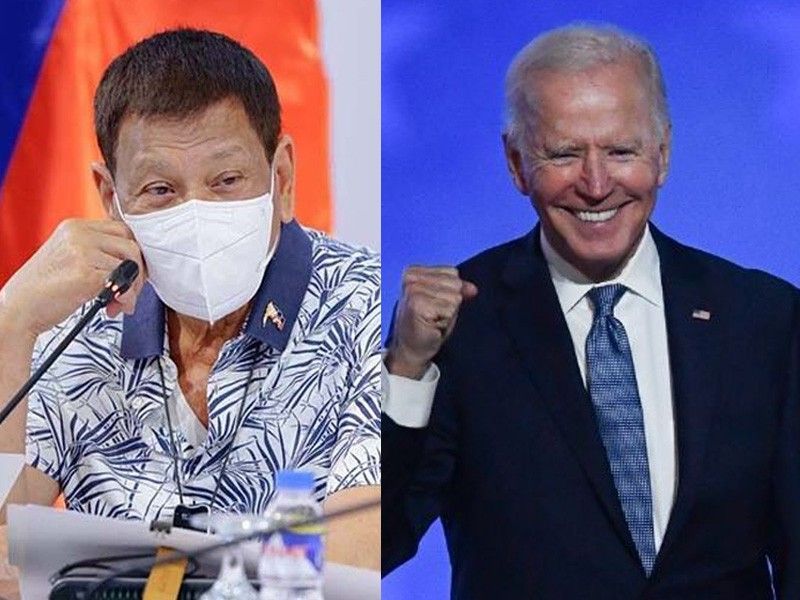Running in circles?: A commentary on Duterte's stance on VFA

On March 5, 2021, Philippine envoy to Washington, D.C. Ambassador Jose Manuel Romualdez announced, in a virtual interview, that the United States Department of Defense has forwarded to him a list of military hardware that the US will be providing to the Armed Forces of the Philippines in exchange for a renegotiated Philippine-US Visiting Forces Agreement.
He observed that the lit of proposed military assistance to the Philippines appears complete and sufficient, especially since more defense equipment from the US is on the way.
Romualdez then said that “Hopefully, the president has seen that since that with Secretary Lorenzana, and that would probably satisfy the president concern regarding the modernization of the armed forces. And more are coming especially helicopters. We will get something like 10 more Blackhawk helicopters coming to the Philippines within this year.”
He then concluded his statement that the Pentagon has given the Philippines an inventory of arms and hardware it can provide to modernize the AFP.
Romualdez’s statement about the Pentagon’s list is directed to President Rodrigo Duterte, who earlier demanded that the US should pay the Philippines if it wants to resume joint exercises with the Philippines with its forces covered by the VFA’s legal guarantees.
During his Feb. 11, 2021 speech, Duterte argued that as allies, “the Philippines and the US share responsibility, but American responsibility does not come for free because after all when war breaks out we all pay.” He also lamented how the US has failed to deliver its previous promises to the AFP, using the delay in the delivering of TOW anti-tank missiles as an example.
The president said that “We (the Philippine government) ask so much of them because they have taken so much from us” during Balikatan exercises when American troops operate on Philippine territory.”
He added that the US is free to rein their troops on Philippine territory and he does not like it because he wants the Philippine to remain neutral. However, according to Duterte, the “exigency of the movement requires their presence here (in the Philippines), I am okay with that.”
Two full circles
Duterte’s demand for compensation from the US in exchange for VFA attracted the attention of the opposition who accused him of mendicancy and commercializing the Philippine-US alliance.
What the critics and opposition figures overlooked was the fact that by asking US compensation in return for a renegotiated VFA, Duterte came into two full circles.
On Feb. 11, 2020, Duterte unilaterally abrogated the VFA after the State Department cancelled the visa of his close friend and former police chief, Sen. Ronaldo de La Rosa. Two of his key cabinet members, however, were uneasy with the president’s decision to terminate the VFA.
Secretary of National Defense Delfin Lorenzana is very vocal against the unannounced passage of People’s Liberation Army’s Navy ships in Philippine territorial waters in Mindanao and on People Liberation Army’s unlawful radio warnings to PAF reconnaissance aircraft patrolling the country’s exclusive economic zone in the West Philippine Sea.
Secretary of Foreign Affairs Teodoro Locsin Jr. has been instrumental in pushing the Department of Foreign Affairs to file 45 diplomatic notes against China for any its actions that are construed as provocation, threats, or coercion against Philippine military and civilian vessels or planes in the South China Sea.
Several Chinese provocative actions in the South China Sea from February 2020 to January 2021 provided Lorenzana and Locsin with a little help in convincing Duterte to suspend twice the VFA’s termination process and later, to renegotiate a new status of forces agreement with Washington. This is a reversal of his earlier decision to abrogate the VFA in February 2020.
In late 2016, Duterte declared that he wants the Philippines to be less dependent on the US for military assistance. His administration parroted the mantra that the Philippines can live without military assistance from the US.
In August 2018, Duterte rejected the US’s offer of military hardware in support of the Philippine military’s 15-year modernization. Three ranking American officials, through a letter, offered the provision of new materiel to the AFP to counter the government’s plan to acquire Kilo-class submarines from Russia. Duterte, however, sharply rebuked the offer saying that the US needs to do more to prove its sincerity.
However, his recent demand for US military assistance in exchange for a new VFA means that American material will be acquired for the AFP’s modernization program. This again is a step back from his rhetoric that the Philippines can live without US military.
By requiring that the US must provide compensation if it wants to keep the VFA, Duterte has made two full circles!
Renato Cruz de Castro is a trustee and convenor of the National Security and East Asian Affairs Program of think tank Stratbase ADR Institute.
- Latest




























